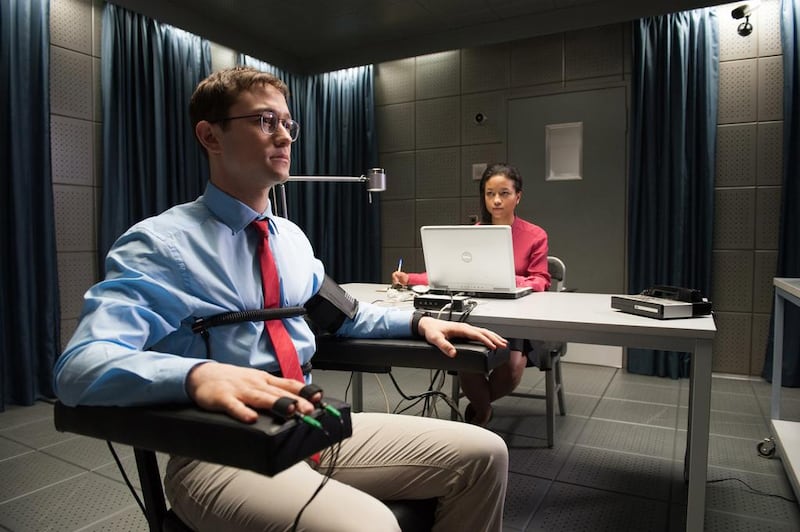Snowden
Director: Oliver Stone
Starring: Joseph Gordon-Levitt, Shailene Woodley, Zachary Quinto, Nicholas Cage, Rhys Ifans
Three stars
It was inevitable that the story of Edward Snowden would be given the Hollywood treatment.
The real-life secret agent might lack the rugged, movie-star good looks and physicality of Matt Damon, but he could easily be a character ripped from the script of a Jason Bourne movie.
There can be few people unaware of how Snowden, disillusioned with the growing level of his government’s covert surveillance of its own – and everyone else’s – citizens, leaked the details to the press and ended up living as a political refugee in Russia following a round-the-world game of cat and mouse with the American intelligence services.
The fact that Citizenfour, the Oscar-winning 2014 documentary about Snowden and his actions by Laura Poitras, was so well received only hastened the inevitable Hollywood version – and who better than Oliver Stone, one of the greatest political filmmakers of his age, to step up to the plate?
The documentary serves as a useful framing point for the feature-film adaptation – though at times Stone seems a little too in thrall to the previous work. Sections of his film are literally frame-by-frame, line-by-line reconstructions of sections of the documentary.
Gordon-Levitt, in the title role, and Star Trek's Zachary Quinto as Guardian journalist Glenn Greenwald, who broke the story, impressively master the mannerisms and nuances of their real-life subjects. However, if you've seen the previous film, you may wonder what we gain from a reconstruction with a celebrity dusting.
Stone's commitment to historical accuracy is on one hand commendable, but it also detracts, in a sense, from the movie. Lest we forget, this is the director who ruffled the feathers of the US establishment with complimentary portraits of Cuban leader Fidel Castro (Looking for Fidel, 2004) and Venezuelan president Hugo Chavez (South of the Border, 2009), gave us the high-octane insanity of Natural Born Killers (1994) and railed against authority with his conspiracy-riddled JFK (1991).
Yet, given a genuine, no-theories-required conspiratorial government scandal of global proportions, he produces an unexpectedly understated response.
The movie’s slow pace and 138-minute run time add to the sense of hyper-realism – but you can’t help thinking that if ever there was a subject that required some angry, ranting Stone polemic, this is probably it. Perhaps this is being overcritical – the movie is an enjoyable and informative work that will bring a vitally important story to a wider audience than the documentary could hope to reach.
It doesn’t quite hit the heights of some of Stone’s true classics but is, nonetheless, possibly the most important film you will see this year. It should certainly be compulsory viewing for anyone with even a passing interest in the basic norms of human rights, freedom of speech and civil liberties.
• Snowden is in cinemas now
cnewbould@thenational.ae





